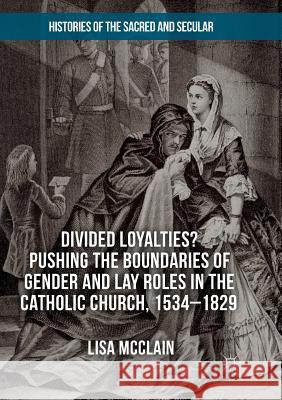Divided Loyalties? Pushing the Boundaries of Gender and Lay Roles in the Catholic Church, 1534-1829 » książka
topmenu
Divided Loyalties? Pushing the Boundaries of Gender and Lay Roles in the Catholic Church, 1534-1829
ISBN-13: 9783030103132 / Angielski / Miękka / 2018 / 282 str.
Divided Loyalties? Pushing the Boundaries of Gender and Lay Roles in the Catholic Church, 1534-1829
ISBN-13: 9783030103132 / Angielski / Miękka / 2018 / 282 str.
cena 95,69 zł
(netto: 91,13 VAT: 5%)
Najniższa cena z 30 dni: 95,69 zł
(netto: 91,13 VAT: 5%)
Najniższa cena z 30 dni: 95,69 zł
Termin realizacji zamówienia:
ok. 20 dni roboczych.
ok. 20 dni roboczych.
Darmowa dostawa!
Kategorie BISAC:
Wydawca:
Palgrave MacMillan
Seria wydawnicza:
Język:
Angielski
ISBN-13:
9783030103132
Rok wydania:
2018
Wydanie:
Softcover Repri
Ilość stron:
282
Waga:
0.35 kg
Wymiary:
21.01 x 14.81 x 1.57
Oprawa:
Miękka
Wolumenów:
01
Dodatkowe informacje:
Wydanie ilustrowane











